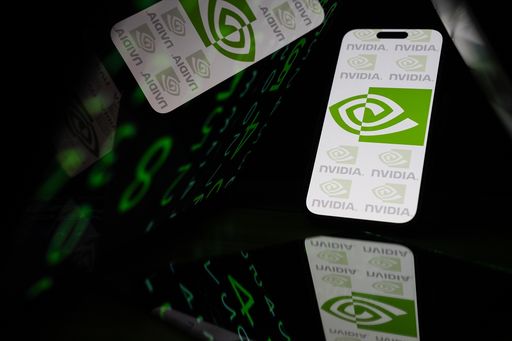Nvidia CEO Jensen Huang said on Wednesday his firm was doing its “best” to serve China's vast semiconductor market. His comments came following a meeting with Beijing officials.
Huang is in the Chinese capital this week to attend the China International Supply Chain Expo, a forum aimed at boosting the country's image as a global defender of free trade, in contrast to the tariff chaos sparked by US President Donald Trump.
He said Chinese officials had told him the country was "open and stable".
"We spoke about... China welcoming foreign companies to invest here and build businesses here, and that China is open and stable," he told reporters at the expo.
Huang also said he had told them his firm, which recently became the first to hit $4 trillion in market value, was keen to serve the massive Chinese market for microchips, which are needed in everything from mobile phones to electric vehicles.
"They want to know that Nvidia continues to invest here, that we are still doing our best to serve the market here," he said.
China's consumer base and tech demand make it one of the largest semiconductor markets globally.
Analysts note that if US export restrictions persist, China has both the incentive and scale to accelerate the development of domestic or lower-cost alternatives to Nvidia's chips, an outcome that could reshape the competitive dynamics of the AI hardware landscape.
Already, Chinese tech firms like Huawei and startups such as Biren and Moore Threads are increasing research and development spending to produce their own AI accelerators tailored for the local market.
Huang also addressed the expo's opening ceremony on Wednesday morning, when he hailed China's role in pioneering artificial intelligence.
"China's open-source AI is a catalyst for global progress, giving every country and industry a chance to join the AI revolution," he said about Chinese AI startup DeepSeek.
"AI is transforming every industry, from scientific research and healthcare to energy, transportation and logistics," he said.
Huang praised China's "super-fast" innovation, powered by its "researchers, developers and entrepreneurs".

Opening up
Nvidia announced on Tuesday that it will resume sales of its H20 AI chips to China after Washington pledged to remove licensing restrictions that had halted exports.
The California-based company produces some of the world's most advanced semiconductors but cannot ship its most cutting-edge chips to China due to allegations that Beijing could use them to enhance military capabilities.
Nvidia developed the H20 – a less powerful version of its AI processing units – specifically for export to China.
However, that plan stalled when the Trump administration tightened export licensing requirements in April.
But Nvidia said this week Washington had told it that "licences will be granted, and Nvidia hopes to start deliveries soon".
The announcement from Nvidia boosted tech firms around the world, with Wall Street's Nasdaq exchange rising to another record high.
Asked on Wednesday about whether he had sought to sway President Trump before heading to China, Huang said: "I don't think I changed his mind".
"It's my job to inform the President about what I know very well, which is the technology industry, artificial intelligence," he told reporters.
















